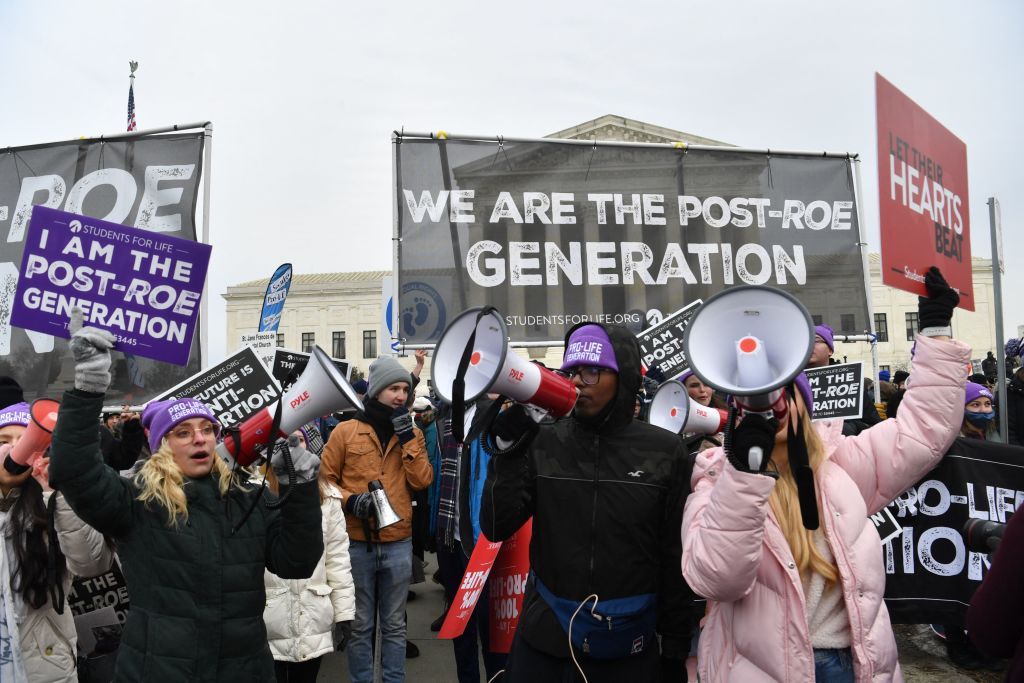A strange abortion story is unfolding in the nation’s capital. In March, several outlets began reporting that DC police had found “five fetuses” in the home of “anti-abortion activist” Lauren Handy, who is a member of the “Progressive Anti-Abortion Uprising group.”
The PAAU is not exactly what one thinks of when it comes to pro-life activism. According to its website, the organization is “committed to radical inclusivity while magnifying secular, feminist, liberal, and LGBTQIA+ identifying pro-life voices, especially those belonging to people of color.” Amazingly, it also claims to have collected 115 fetuses from a Washington, DC clinic’s medical waste.
It has to be one of the more bizarre news stories of 2022. But also outré has been how local authorities and the media have tried to explain the story.
The police were apparently responding to what they described as “a tip regarding potential biohazard material at the location.” A later announcement from the police asserted that the fetuses were aborted “in accordance with DC law,” and “there doesn’t seem to be anything criminal in nature… except for how they got into this house.” Media across the nation, in turn, though obviously appalled by this gruesome event, seemed to be capable of little more than factual reporting that always ensured the remains were described only as “fetuses.”
Amid this horrifying incident, it’s hard not to see the gross moral poverty of abortion in America. How long were these “fetuses” there? What, one wonders, do these “fetuses” look like? Little tiny babies, perhaps? Yet the pro-choice movement knows that acknowledging this would undermine their entire cause. If those unborn organisms are actually human, well…
Thus has media coverage of the PAAU portrayed the incident as a kind of freakish human interest story, akin to discovering people with dead cats in their home. It’s obviously weird. Definitely not recommended. And, in an obscure way, even criminal. But is it immoral or evil? The pro-choice movement, and its attendant accomplices in the media, lacks the language, and even the ethical framework, to understand and describe such episodes.
Perhaps in one sense this failing explains why the pro-life movement is ascendent — people can sense the incongruities. Thus do we see a Supreme Court with a conservative majority antipathetic to abortion that this summer will rule in Dobbs v. Jackson Women’s Health Organization, which is likely to dramatically change abortion law in this country. In the six months since Texas passed a ban on abortions past the six-week mark, legislators in more than a dozen other states have proposed similar bills. In Idaho, Governor Brad Little of Idaho signed a bill into law modeled on the one approved in Texas. Governors in Kentucky and Arizona in late March signed bills prohibiting abortions after fifteen weeks.
The left, no surprise, is increasingly terrified of the possibility of a post-Roe America. To cite but one example, in an embarrassingly ranty January op-ed for the Washington Post, gender columnist Monica Hesse warned pro-life activists of the “odious brave new world” they were creating (you mean the one where children aren’t murdered in the womb?). She further lectured pro-lifers for only caring about children while they “lurk” outside Planned Parenthoods (an obvious mistruth) and compared embryos to chia seeds (what, according to Hesse’s logic, would the anti-abortion activist Handy then be guilty of?). Democrat politicians, meanwhile, have been trying to force non-profits to expose their donors — possibly, suggests the Federalist, in order to dox conservatives, including those in the pro-life movement.
Some liberal states are fighting back with pro-choice legislation. Colorado governor Jared Polis in early April signed a bill codifying the right to an abortion in state law, guaranteeing access to reproductive care before and after pregnancy and banning local governments from imposing their own restrictions. New Mexico in late 2021 repealed an old statute from 1969 that had outlawed abortion with few exceptions. Other states that passed abortion-supportive laws in 2021 include Virginia, California, Washington and Connecticut. Yet the shift in the other direction is obvious and dramatic: twenty-one states in 2021 passed legislation that curtailed abortion.
Does this reflect a shift to a more pro-life electorate? It’s at least possible. Some polling suggests that Americans are more pro-life than they were even a decade or two ago. A poll by the Knights of Columbus and Marist earlier this year found that 71 percent of Americans think abortion should be heavily limited or only allowed in certain circumstances. An AP/NORC poll found that only 34 percent of Americans thought abortion should be legal in the second trimester, and only 19 percent in the third trimester. Some of this is likely motivated by scientific research — parents can learn the sex of their baby at ten weeks with a blood test, and see the child in the womb sucking its thumb at eighteen weeks. A heartbeat can be detected at six weeks.
In other words, that living organism in the womb of the mother certainly seems like a human. That heartbeat isn’t one of a cat or dog, but a human person. Its sex, discernible in the first trimester, indicates it already has the physical traits necessary to create life one day. Its genetic makeup is that of its mother and father. Pace Ms. Hesse, that ain’t no chia seed. And frankly, Ms. Hesse, who gave birth to a baby girl in 2021, should know better.
So should the DC police and all the national media reporting on the grotesque case of Lauren Handy and her baby corpses. Human fetuses are, as no one should be surprised to learn, humans. There is simply no amount of rhetoric and bombast about a “woman’s right to choose” or bodily autonomy that can obscure that obvious truth. The left’s confused reaction to an eccentric activist, as surprising as that might be, has shone a glaring light on an inconvenient truth.

























